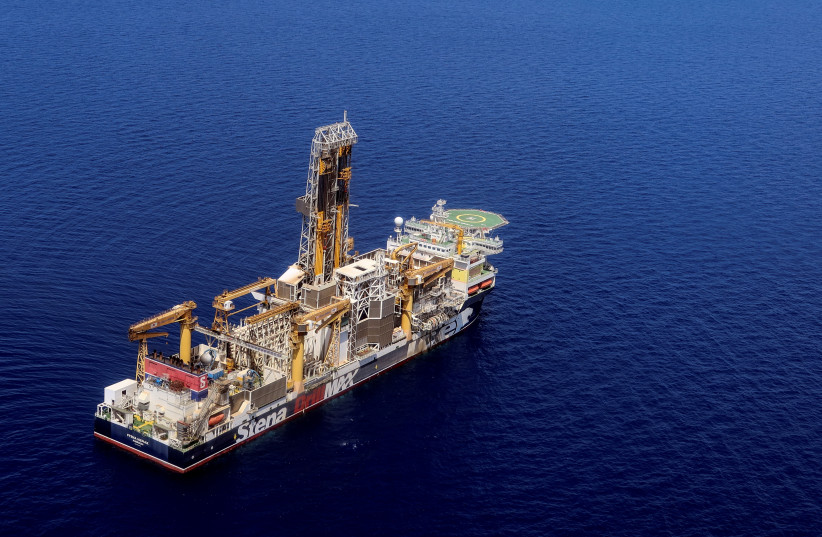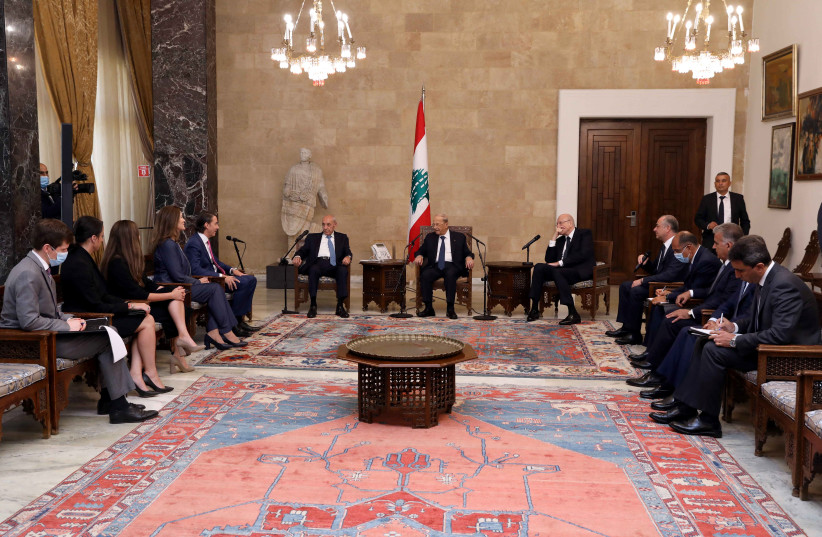Hezbollah chief Hassan Nasrallah said on Monday that he is leaning away from fighting a war against Israel over gas.

Maritime border talks between Israel and Lebanon have progressed in recent weeks toward a final arrangement, US energy envoy Amos Hochstein said Monday in Beirut.
Following a meeting with Lebanese President Michel Aoun, Parliament Speaker Nabih Berri and Prime Minister-designate Najib Mikati, he said: “I remain optimistic that we can make continuous progress as we have over the last several weeks, and I look forward to being able to come back to the region to make the final arrangement.”
The US State Department said Hochstein arrived in Beirut on Sunday “to discuss sustainable solutions to Lebanon’s energy crisis, including the Biden administration’s commitment to facilitating negotiations between Lebanon and Israel on the maritime boundary. Reaching a resolution is both necessary and possible, but can only be done through negotiations and diplomacy.”
“Reaching a resolution is both necessary and possible, but can only be done through negotiations and diplomacy”
US State Department on the Israel-Lebanon maritime dispute

The US has been mediating between Lebanon and Israel since 2020 to resolve their longstanding dispute over the demarcation of their border in the Mediterranean Sea. The lack of a resolution made it difficult for Lebanon to tap into its natural-gas resources in a time of severe government and economic instability.
Lebanon and Israel disagree on the status of an 860-sq.km. triangle in the Mediterranean Sea, which would be about 2% of Israel’s economic waters. Israel originally agreed to split the area 58% to 42% in favor of Lebanon. Talks broke down after four rounds of talks in 2021, when Lebanon sharply increased its demands to almost triple the disputed area to 2,300 sq.km., abutting Israel’s Karish gas reservoir.
Nasrallah leans away from war with Israel
Hassan Nasrallah, leader of the Iran-backed, terrorist group Hezbollah, which is part of the Lebanese government, on Monday said he was leaning away from fighting a war against Israel over gas.
“The treasure is in the sea, and we have this historic opportunity,” Nasrallah said, Lebanese news site Naharnet reported. “We put ourselves in a position of a 50% war possibility and 50% avoidance of war, and today we are in a better position.”
Hezbollah is not a party to the talks, Nasrallah said, adding that it would decide how to behave in relation to their outcome.
Hezbollah broadcast a video of vessels involved in Israel’s offshore natural-gas industry as Hochstein headed to Beirut on Sunday. It was meant as a threat if production in the Karish field continued.
Energy Minister Karin Elharrar said she wanted “to make it as clear and unequivocal as possible that Karish is an Israeli reservoir,” and the company that has the license to extract gas from Karish, Energean, “will be able to produce gas for the local and export markets the moment they’re ready. It has no connection to Lebanon.”
Israeli officials confident dispute can be resolved
Government officials in Jerusalem and Beirut expressed optimism in recent days that the dispute would be resolved soon.
On Sunday, Elharrar said Israel’s proposal “can certainly help Lebanon, and I’m very hopeful that they will accept it.”
“We submitted a proposal, a good, serious proposal for Lebanon,” that Hochstein will present on his visit, she said. “I call on Lebanon to take what is a very significant step for them toward becoming a country that produces gas to solve their economic and energy crisis.”
On Friday, Lebanese Foreign Minister Abdallah Bou Habib tweeted: “There has never been optimism to the extent that there is today” about the negotiations.